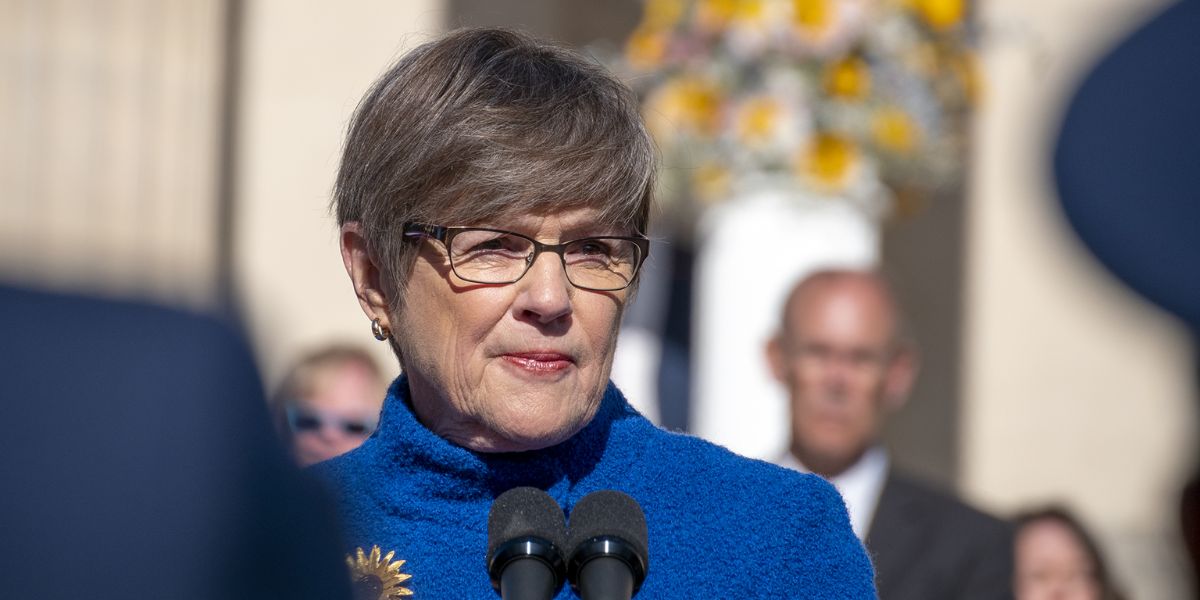Kansas House Resoundingly Rejects Kelly-endorsed Tax Plan
The Kansas House on Thursday rejected a compromise between senior Republicans and Democratic Gov. Laura Kelly that would have reduced income taxes, casting question on the likelihood of tax relief this year.
Kelly had vowed to approve the comprehensive legislation, which would have reduced taxes for those earning more than $30,000 per year in taxable income.
The proposal would have abolished taxes on Social Security payments, a long-held aim of both parties and ended the state sales tax on food on July 1, six months ahead of schedule. Furthermore, it would have increased the standard deduction and the child and dependent tax credit.
However, a large number of House MPs were dissatisfied with the plan since it focused income tax relief on the highest income tax band while providing insufficient property tax reduction. They were particularly furious that the Senate had not taken into account an earlier tax proposal that had been unanimously approved by the House.
The House sent the tax measure to House and Senate negotiators by voice vote early Thursday evening. The vote was not recorded, but the “yes” votes to bring the bill back for more work were significantly louder than the “no” votes and appeared to cross party lines.
“Kansasians deserve better. Kansans deserve a tax reform that saves them money,” said Rep. Stephen Owens, a Republican from Hesston.
The vote followed the Senate’s 38-1 approval of the agreement earlier in the day. It happened following a closed-door meeting of House Republicans away from the Capitol earlier that day. The Associated Press reported that a reporter who joined the caucus was ordered to leave.
Under current Kansas legislation, the tax brackets are 3.1%, 5.25%, and 5.7%, with persons earning more than $30,000 in taxable income charged at the highest rate. The idea would have cut the top bracket to 5.5%.
After nearly two years of squabbles over Kansas’ income tax structure, Kelly and GOP leadership are back to square one with the plan rejected. And it casts doubt on the Legislature’s ability to pass tax cuts this year.
It was unlikely that lawmakers would reach a new agreement before adjournment on Friday, but they will have another chance when they return for their annual wrap-up session at the end of the month. Kelly has also promised to call a special session if lawmakers leave without passing the tax cuts she has proposed.
Lawmakers and Kelly had both insisted on tax cuts this year, but the governor vetoed a single-rate income tax plan popular among Republicans. After Republican lawmakers failed to overturn Kelly’s veto, the two parties came to an accord this week.
The compromise approach was projected to cost approximately $1.4 billion over the following three years. Kelly vetoed a plan earlier this year centered on the flat tax, which would have cost more than $1.6 billion over three years.
Despite acknowledging that the proposal was imperfect, Kelly personally visited a meeting of House Democrats on Thursday morning to solicit their support.
“I want you to know that I’m not happy with some of the things that will be there. But when I look about where we started with taxes this year vs where we are today, there is a huge difference,” Kelly told House Democrats.
Kelly’s staff declined to comment after the vote.
House Speaker Dan Hawkins, a Republican from Wichita, also urged his colleagues to support the legislation but admitted he would have preferred a different one.
“This bill is a good one. We all know that it isn’t as good as Senate Bill 300 was. “Now you must make a decision,” Hawkins added, referring to the House’s already overwhelmingly passed tax proposal.
However, the compromise was poorly welcomed, particularly in the House, where lawmakers were irritated that the final product differed so drastically from the House’s unanimously passed dual-rate income tax plan last week.
“I didn’t understand with a unanimous vote why the Senate wouldn’t want to take it up,” said Abilene Republican Rep. John Eplee.
Representative Tom Sawyer, a Democrat from Wichita, urged his colleagues to return the bill for further negotiations. “This is our chance to sit down and discuss Senate Bill 300 with the Senate,” he told reporters.
The legislation was adopted by the Senate in a near-unanimous vote earlier in the day, with politicians on both sides of the aisle framing it as a long-term compromise.
“This has been a difficult and divisive legislative session,” Senate Minority Leader Dinah Sykes, a Lenexa Democrat, stated. “But I think with this plan we can show our constituents that we can come together and do the right thing and cut taxes for all Kansans.”
They are now declaring the tax issue to be resolved, at least temporarily.
Senate President Ty Masterson, an Andover Republican, stated that he would not return to the negotiation table before the end of the week and appeared unlikely to consider the dual-rate proposal. Masterson, one of the state’s most vocal supporters of the flat tax, claimed that the House had mistreated the Senate throughout the process, not the other way around.
“We had a bipartisan supermajority that was completely ignored, and then they sent me something stuffed in a Senate bill,” he remarked shortly after the vote. “Our conference committees on tax are over.”
Following the vote, Hawkins stated that House Republicans were committed to providing tax relief. “This is a long process,” he remarked.
Sen. Tom Holland, a Baldwin City Democrat and the lone senator who voted against the compromise plan, said he hoped Senate leadership would step aside and enable individual lawmakers to reach an agreement now that their plan had failed.
“I am more than confident the six of us can work out a conference committee report,” he went on to say.
Despite historic surpluses, Kansas lawmakers failed to pass tax cuts last year. With the rejection of the agreement, Sykes predicted that “we’re going to go home without a tax bill.”










